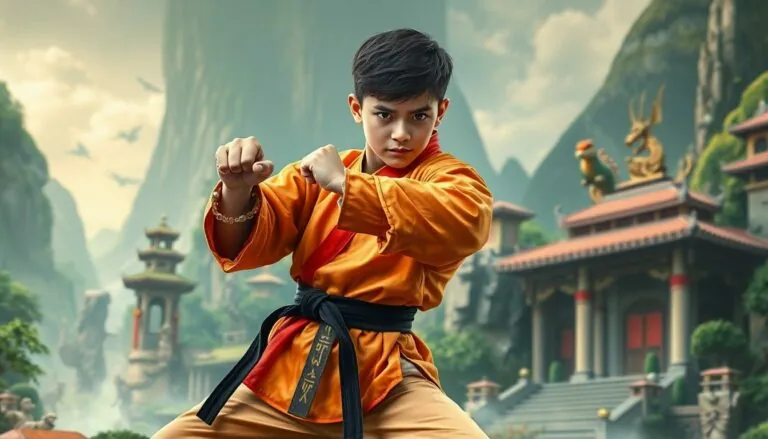In a world where dragons roam and wizards cast spells, MMORPGs reign supreme as the ultimate escape from reality. But what does MMORPG even mean? If you’ve ever found yourself lost in a virtual realm, battling fierce monsters or crafting epic gear, you’re not alone. Millions dive into these massively multiplayer online role-playing games, where the only limit is their imagination—or their internet connection.
Table of Contents
ToggleUnderstanding MMORPG Means
MMORPG stands for massively multiplayer online role-playing game. This genre immerses players in expansive virtual worlds, enabling them to interact with thousands of others simultaneously.
Definition of MMORPG
MMORPGs combine role-playing elements with the vast player networks found in online gaming. Players create customizable avatars and explore expansive environments. These games offer quests that reward them with experience and items for character progression. Interaction among players is crucial, as they often form guilds or alliances to tackle challenges together. Unique gameplay mechanics and rich narratives enhance the overall experience. Examples include titles like World of Warcraft and Final Fantasy XIV, which showcase diverse worlds and vibrant communities.
The Evolution of MMORPGs
Initially, MMORPGs emerged in the 1970s with text-based adventures like MUD (Multi-User Dungeon). This format attracted players, but graphical advancements during the 1990s sparked a revolution. Games like Ultima Online and EverQuest introduced immersive 3D environments. These innovations set the standard for future titles. Recent years saw mobile MMORPGs gain popularity, making these games more accessible. Notable examples include Genshin Impact and Lineage 2 Revolution, bridging gaps between traditional gaming and modern accessibility. As technology evolves, MMORPGs continue to grow, shaping the gaming landscape.
Key Features of MMORPGs
MMORPGs showcase unique characteristics that enhance the gaming experience for players.
Persistent Worlds
Persistent worlds maintain continuity, allowing players to explore vast, ever-evolving environments. Changes remain even after logging out, creating a sense of realism. Players encounter various challenges, quests, and events that shape the game world. For instance, the impact of player decisions can alter landscapes, affecting community dynamics. This dynamic infrastructure encourages ongoing interaction among thousands of players, driving collaboration and competition. Furthermore, these worlds often contain rich lore, deepening player engagement during explorations.
Character Customization
Character customization empowers players to create avatars that reflect their personalities. Options include a wide range of races, classes, and appearances, allowing for unique identities. Players express themselves through distinct armor styles and weapon choices, tailoring their characters for specific gameplay. Skills and abilities can be fine-tuned, enhancing roles within groups like tanks, healers, or damage dealers. Over time, players develop their characters, fostering a sense of pride and ownership. Each choice directly influences gameplay experiences and interactions, ensuring a deep connection to the game.
Popular MMORPG Titles
MMORPGs attract players through diverse gameplay experiences and expansive worlds. Some titles have defined the genre, while others have emerged more recently, captivating millions.
Classic MMORPGs
EverQuest remains a landmark title, launching in 1999 and featuring a vast fantasy world. Players embraced its immersive environments and intricate quests. Ultima Online, released in 1997, pioneered many MMORPG elements, allowing players to shape their destinies. Another notable classic is World of Warcraft, introduced in 2004, which transformed the gaming landscape and became a cultural phenomenon.
Modern MMORPGs
Genshin Impact has gained significant attention since its 2020 release, blending action RPG elements with a gacha system to enhance gameplay. Lost Ark, released in 2022, combines traditional MMORPG mechanics with exciting combat and exploration. Final Fantasy XIV, updated consistently, maintains a dedicated player base due to its engaging storytelling and rich world-building. Black Desert Online stands out for its stunning graphics and dynamic combat system, attracting players seeking immersive experiences.
The Community Aspect of MMORPGs
The community aspect of MMORPGs plays a crucial role in shaping the gaming experience. Players engage with one another in real-time, fostering connections through collaboration and competition.
Player Interactions
Interactions between players take various forms, such as chatting in-game or teaming up for quests. Real-time communication enhances immersion. Many players form friendships, sometimes extending beyond the game. Co-op gameplay encourages strategic teamwork, increasing enjoyment and success. Rivalries also develop through competitive events, motivating players to improve and engage. Shared challenges, like boss fights, bring players closer, creating memorable moments. This social dynamic is essential, as it encourages players to return, fueled by the bonds they’ve forged.
Guilds and Groups
Guilds and groups significantly enhance the sense of community in MMORPGs. These organized teams focus on teamwork, often pursuing common goals, such as conquering dungeons or completing quests. Guilds provide players with a support network, offering opportunities for camaraderie and resource sharing. Members assist one another in skill development and in-game strategy. Many guilds host events or contests, increasing member engagement. Through these shared experiences, player loyalty strengthens, and lasting friendships often emerge. Guilds represent a cornerstone of MMORPG communities, embodying cooperation and shared passion for the game.
Impact of MMORPGs on Gaming Culture
MMORPGs significantly shape gaming culture through social interactions and innovative game design.
Social Connections
Players forge meaningful connections within MMORPGs. These interactions often transcend virtual boundaries, leading to friendships that last beyond gameplay. Communication happens in real time, where players collaborate for quests or compete against each other. Guilds serve as hubs for teamwork, creating support networks that enhance player loyalty. Shared experiences during raids or events strengthen these relationships, making gaming a communal activity. The bonds developed within these environments can influence players’ social lives, leading to real-world meetups and lasting partnerships.
Influence on Game Design
Designers draw inspiration from the collaborative nature of MMORPGs. Game mechanics now prioritize social engagement, encouraging player interaction. Innovations include dynamic quests that adapt based on group actions, fostering community involvement. Single-player games increasingly integrate multiplayer elements, blurring the lines between genres. As a result, immersive worlds maintain player attention, enhancing overall experiences. Developers recognize player feedback as a catalyst for future updates, creating a more responsive gaming landscape. This adaptive design keeps players invested, shaping their expectations for future gaming adventures.
Conclusion
MMORPGs represent a unique blend of adventure and community that captivates millions worldwide. Players dive into richly crafted worlds where they can connect with others and embark on epic quests. The evolution of these games reflects advancements in technology and player expectations, creating immersive experiences that continue to evolve.
As players engage in dynamic interactions and forge lasting relationships, MMORPGs foster a sense of belonging that extends beyond the screen. This genre not only shapes individual gaming experiences but also influences the broader gaming landscape, paving the way for future innovations. With their ever-growing popularity, MMORPGs will undoubtedly remain a staple in the gaming community for years to come.




